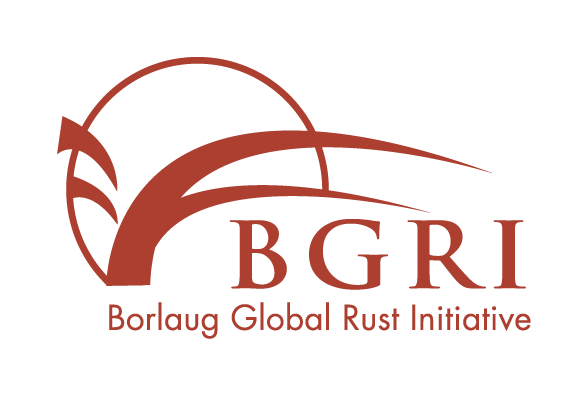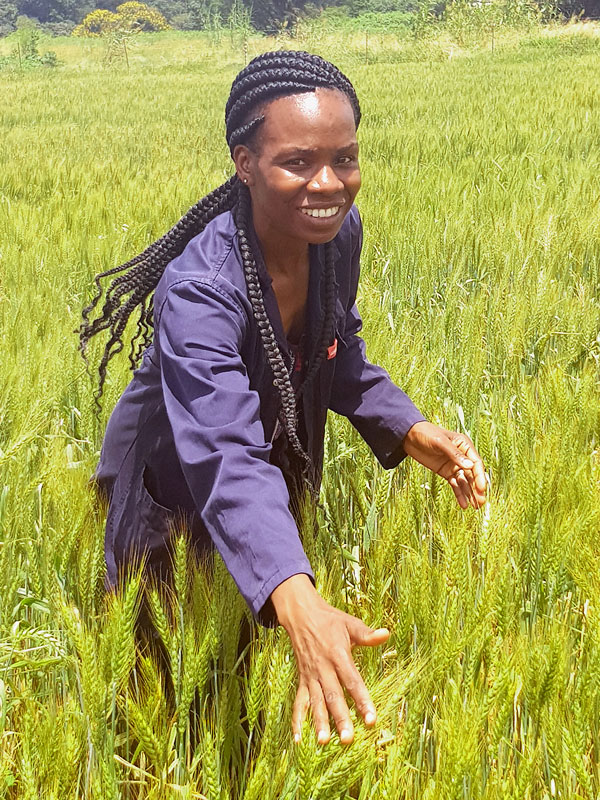Batiseba Tembo, Women in Triticum Early Career winner, from Zambia, is working as a plant breeder in the Ministry of Agriculture under the department of Zambia Agricultural Research Institute (ZARI). She is based at Mt. Makulu Central Research Station in Chilanga of Lusaka province in the wheat breeding programme.
Tembo is an avid researcher and loves plant breeding. As a breeder, she is keen to increase wheat yields under rain-fed condition, which is faced with huge challenges such as wheat blast, spot blotch leaf rust and head blight, by developing varieties that are high yielding, disease resistant and also tolerant to abiotic stresses while taking in to consideration farmers’ preferred traits. Tembo indicated that wheat was an important food crop that requires all the necessary attention for it to flourish and meet the increasing global demand.
Tembo loves breeding and wheat research is in her heart. Her passion for wheat research led her discover wheat blast during 2017/18 rainy season. This was the first time blast was observed in the continent of Africa. Currently, she is evaluating wheat germplasm to identify sources of resistance to wheat blast that could be used in the breeding programme. Wheat blast is a troublesome disease that can cause total yield loss if left unchecked hence the immediate need to tackle the disease to halt the spread within Zambia and its neighbouring countries with similar environmental conditions.
Tembo obtained her BSc. in Agricultural Science and MSc. Agronomy at the University of Zambia in Lusaka. She obtained her Ph.D. in plant breeding at the University of KwaZulu-Natal, Pietermaritzburg campus, South Africa where her focus was on breeding investigations and validation of molecular markers linked with spot blotch disease resistance in wheat (Triticum aestivum L.) germplasm for the rain-fed conditions of Zambia.






